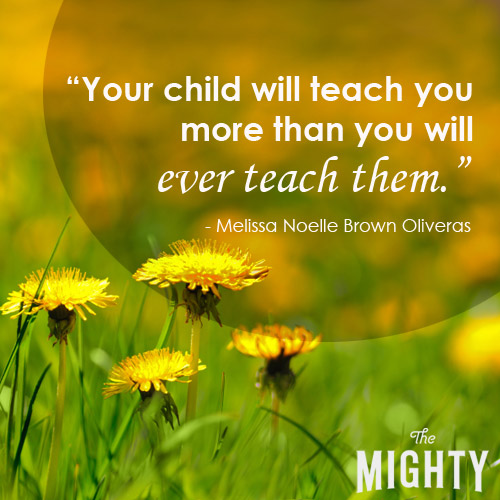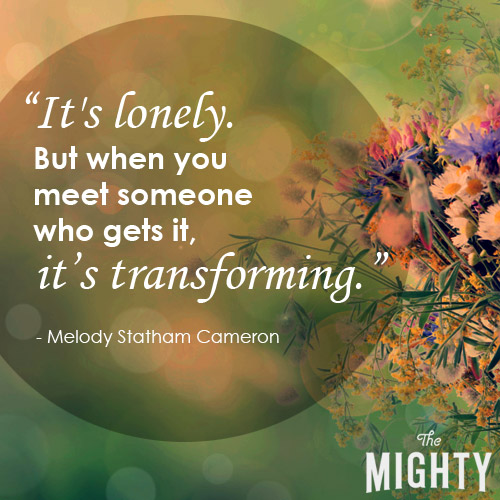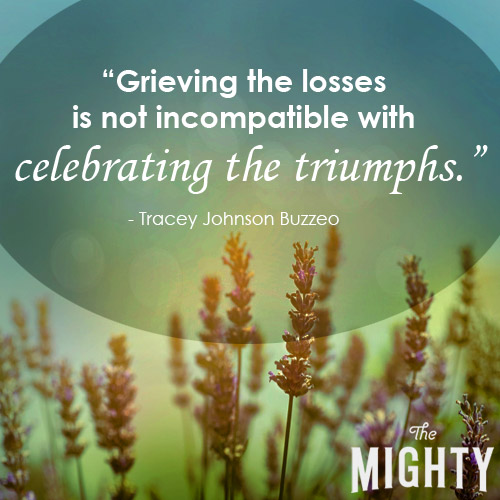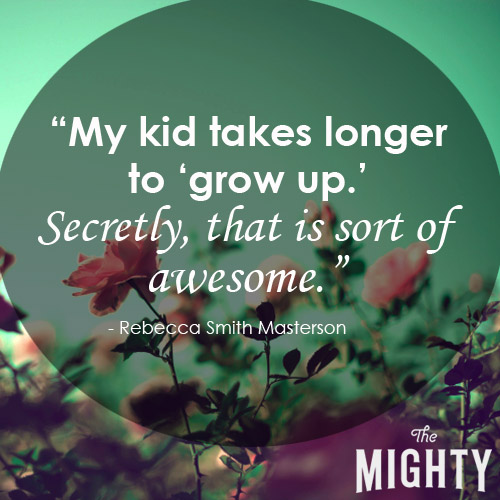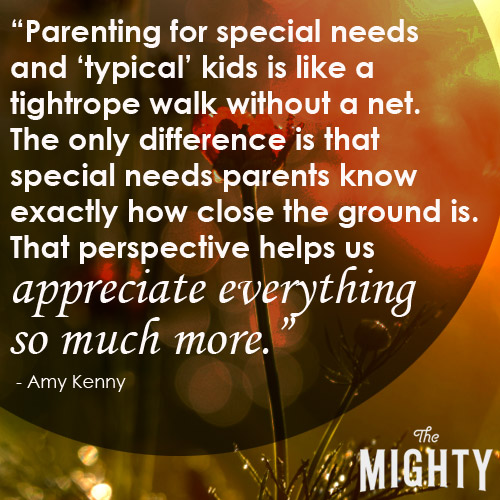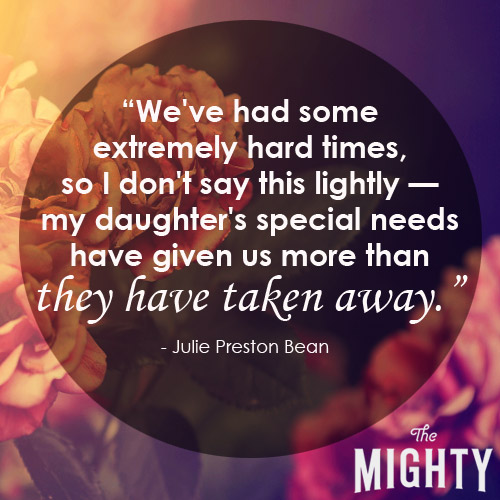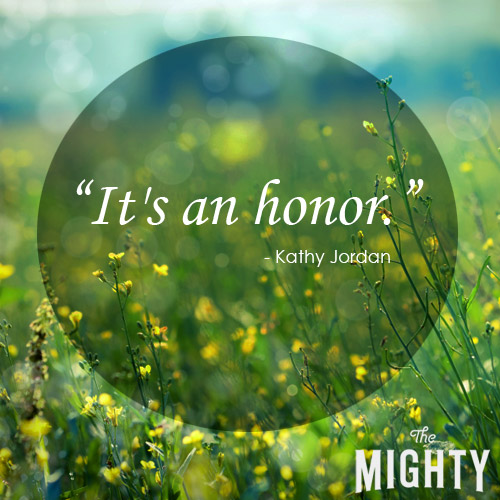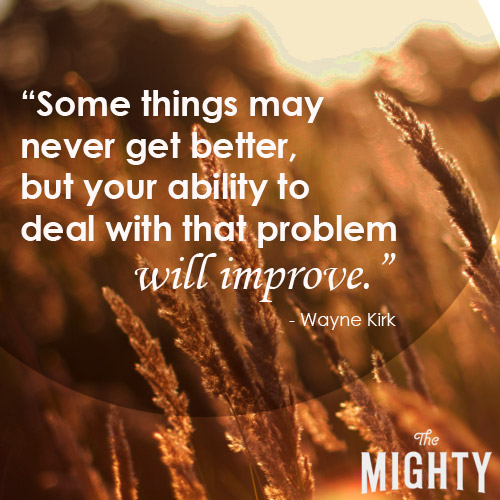One of the best articles I have read in a long time, thanks Chris Bonnello, for sharing. I shared the link to his article, but it is below in it's entirety. Well worth the read.
____________________________________________________________________________
Teenagers and young adults, this one’s for you.
I was the weird kid.
More specifically, I was the boy with Asperger Syndrome before anyone knew what Asperger Syndrome was.
When I was ten, an educational psychologist came to assess me. Today, one of those assessments would give me an immediate diagnosis, and my parents and teachers would be offered advice on how to help me where I struggled.
But of course, it was 1995. So this professional psychologist wrote down “slightly odd personality” on his form and that’s where it ended. (I’m not kidding, that is a literal quote from the report he wrote and submitted.)

This blog was almost called “slightlyoddpersonality” for that exact reason.
And yes, that’s me aged 7.
Growing up on the autism spectrum can be difficult. Especially if,
as I’ve described before (point 6), you’re on the mild end of the spectrum- ‘normal enough’ for people to have high expectations of you, but just ‘autistic enough’ to really struggle to achieve them.
If you’re growing up on the spectrum, this article was written for you. I grew up with mild autism myself: I struggled with isolation, I struggled with understanding other people, and I struggled with other people not understanding me.
So, from one autistic to another, here is my honest advice to you.
TOP TEN TIPS FOR GROWING UP ON THE AUTISM SPECTRUM
1. YOU ARE NOT ALONE
Yes, it feels like we’re alone at times. A lot of the time. But we’re not.
I was an adult before I met someone with a brain like mine. Given that 1% of us are on the spectrum, I’m amazed it took so long.
(By the way, 1% sounds tiny, but it’s actually pretty big. Are there 100 people in your year group? Then you can expect one to be on the spectrum. Are there 1000 students in your school? You can expect ten of them to be on the spectrum. Do you live in Britain, a country with 70 million people? Then you share a country with 700,000 other people on the spectrum.)
I give the ‘you are not alone’ advice to several people: those who have lost relatives, those who suffer with depression, and just about anyone going through a hard time.
Why? Because the advice is always true. And it helps so much if you can find others who are going through the same as you. I promise they’re out there. Loads of them.
In fact, you’ll find loads of them online. There are more autism/Asperger’s online communities than ever these days. I’ll leave a list for you at the end.
2. DON’T LET OTHER PEOPLE DECIDE WHO YOU ARE
Everyone should know who they are. It’s an important part of being at peace with yourself. But if your self-image is negative, that can be quite damaging and totally false. (I’ve been through two bouts of cognitive behavioural therapy. Trust me on this.)
It’s a sad fact- for everyone, autistic or not- that if you hear people criticising you for long enough, you start to believe they’re right.
So, if you’re not happy with who you are, my advice is to ask yourself this question- am I actually unhappy with who I am, or am I only unhappy because of what others are telling me?
I realised this for myself when I remembered how happy my childhood was… until people started telling me I was different. So, when I think about it, I became unhappy when other people told me I needed to be.
Don’t fall into the same trap that I did. You are your own person, not everybody else’s.
3. USE YOUR OWN METHODS, AND GO AT YOUR OWN PACE
I’ve known for a while that I work differently to others. And that’s fine- I tend to succeed anyway if I try hard enough. Unless I’m following other people’s methods, or going at someone else’s pace.
For example: I played in a football match when I was eight (soccer, for any American readers), and I was in goal. This meant I was the only one in the team allowed to use my hands, and I was expected to use them.
Except, I didn’t. I kept the ball away with my feet, time and time again, and learned I was pretty good at it. I ignored the people at the edge of the pitch telling me I had to use my hands because that’s what goalkeepers are supposed to do, and kept on defending with my feet.
0-0 with five minutes to go. I was doing my job perfectly. And then I was taken to one side by an adult, and ordered to use my hands, because that’s what goalkeepers are supposed to do.
I used my hands. Five minutes later, we lost 4-0.

…And guess whose fault it was?
If you need to do things differently to others, then do it. (But be diplomatic. People often think you’re rude if you don’t listen to their advice.) Where possible, surround yourself with people who understand why you need to do things differently.
If you need to go faster than other people, do it.
If you need to go slower than other people, do it.
And it is definitely not your fault if you try doing it someone else’s way and it doesn’t work. Because let’s face it, they wouldn’t succeed doing it your way.
4. SECONDARY SCHOOL MEANS LESS THAN YOU THINK
Sounds difficult to believe, but trust me.
Back when I was at secondary school, it was the biggest part of my world. I was there five days a week, with people I liked andpeople I hated. Bullies don’t need much ammunition, and I gave them loads. And when you’re at school, each year can feel like a long time.
Then I left secondary school.
I never met the bullies ever again.
And I never worried about how crap I was at subjects I didn’t care about.
And, best of all, nobody in the real world cared whether I was cool in Year 11.
I’m serious! Those ‘cool kids’? Those ‘popular’ guys who seem to love hurting people? I almost feel sorry for them. They had no idea that once they left school, that ‘coolness’ would mean absolutely nothing.
I left school and eventually found my dream job. They left school and… well, I actually don’t know what they did. Couldn’t give a crap, to be honest. They might as well no longer exist.
I know that if you don’t get on well with school, it can feel horrible.
But it does not last forever. And once it’s gone, it’s gone for good.
5. WHATEVER YOU DO IN LIFE, FIND A PLACE WHERE YOU CAN PLAY TO YOUR STRENGTHS
People with autism have more in common with others than we think. One major thing is this: if we get the chance to play to our strengths, boy can we play to our strengths.
It’s easy to believe that in order to succeed anywhere, you have to get good English and maths grades.
(I won’t lie, English and maths are fairly important life skills. But nowadays there’s plenty of support for adults who struggle with these. If that’s you when you leave school, maybe it’ll be a good idea to take some of these classes as an adult.)
But it’s a mistake to think that ‘academic’ strengths (English, maths, science) are the only strengths that matter. And your value as a person does NOT depend on how high your grades are.
There are more important life skills than academic subjects.
Are you an organised person? Then do a job that only organised people can do.
Are you a patient person? Then do a job that only patient people can do.
Are you a hardworking person? Then do a job that only hardworking people can do.
Are you a [insert strength here] person? Then do a job that only [insert strength here] people can do.
People can throw phrases like ‘special needs’ or ‘learning difficulties’ around as much as they want, but autistic people can be bloody good at stuff. (Heck, even I became a teacher. Nobody on Earth saw that coming when I was thirteen.)
6. NOT EVERYTHING IS ‘YOUR FAULT’
7) If you don’t notice that a girl is interested in you, it’s Your Fault. Not theirs for not bothering to actually tell you.
8) If someone drops an extremely subtle hint and it goes over your head, it’s Your Fault. Not theirs for not bothering to actually tell you.
9) If you ask people whether they want the last potato and everyone says ‘no, that’s fine’, it’s Your Fault if you take it. You should have read them correctly and interpreted their ‘no’ as a ‘yes’. Because that’s what normal people do, apparently.
10) We find it difficult to read people, and that’s Our Fault. Meanwhile other people find us difficult to read, and that’s Our Fault too.
So, allow me to show the difference between what is actually our fault and what is not.
It IS NOT your fault if people misunderstand you when you’re trying to be nice.
It IS your fault if you choose to be deliberately nasty to people.
It IS NOT your fault if you’re quiet around people because you are honestly uncomfortable with them.
It IS your fault if you don’t talk to people because you can’t be arsed.
It IS NOT your fault if you find other people difficult to like because they’ve made you feel like the odd one out.
It IS your fault if you choose to hate other people just because they’re different to you.
It’s important to take responsibility for your actions.
It is also important not to shoulder the blame for other people’s mistakes.
Make sure you get the balance right!
Important extra point: it’s often the case that people think they’re being blamed for something, when nobody else has even noticed. This is especially the case when people are anxious about something. A lot of the time, other people aren’t even paying attention!
7. DON’T BE AFRAID TO ASK FOR HELP
And by ‘ask for help’, I don’t just mean in lessons. I mean with the really serious stuff too.
Mental health is quite a focal point right now, and professionals are treating it more seriously than they’ve ever done before. Especially with teenagers and young adults.
If you need guidance or counselling, ask for it. (If you have a diagnosis such as autism or Asperger’s they might even see you as a priority.) If you don’t feel comfortable asking your doctor yourself, ask a parent to do it for you. Those services exist for a reason- if you need them, use them!
8. OTHER PEOPLE FIND STUFF HARD TOO
This is an extension to ‘you are not alone’. Finding things difficult isn’t just an autism thing. It often looks like other people aren’t struggling with anything, but a lot of those people are acting. Many, many people are so good at wearing a brave face that it’s difficult to tell what’s actually going through their head.

Because let’s face it, sometimes we don’t like talking about our problems either.
9. IF YOU HAVE THE CHOICE BETWEEN BEING NORMAL AND BEING HAPPY, CHOOSE TO BE HAPPY!
The most depressing years of my life were my early adulthood years- just before I discovered I was autistic. Up until then, I went to so much effort trying to look ‘normal’. And I lost such a huge part of myself. There were even people in my family telling me they didn’t recognise me anymore. It was horrible.
As a friend once told me (metaphor alert), “if you wear a mask for too long your face changes to fit it.” If you spend too long pretending to be ‘someone else’, one day you’ll wake up and find that the real you has vanished- and the ‘someone else’ is all that’s left.
You don’t want to waste time being ‘normal’. You’re already normal in your own way, and everyone else is weird. (I often think that Asperger’s is only called a disorder because there’s more non-Aspies than there are Aspies. If it were the other way round,they would have the disorder, not us!)
‘Be yourself’ is common advice, and it’s common for a reason.

To those who don’t know, this was Dorothy in the Wizard of Oz. Anyone who can kill a witch with water is enough of a legend to listen to.
10. IN ALL YOU DO, REMEMBER HOW MUCH YOU’RE LOVED
This is another bit of advice I’d give to anyone going through hard times. If all else fails, remember the people who value you. Because their love for you is so, so, so important.
Anyone who really values you will offer you a shoulder to cry on when you need it. Find the people who are there for you, the people you know you can trust, and don’t be afraid to rely on them.
Not everyone will say how much they care about you, of course. Some people only save those words for special occasions, or others are just too shy to say it. That doesn’t mean that they don’t care about you. Different people express their love differently, but mean it just as much.
(If any readers are parents or teachers of youngsters on the spectrum, take note of this. There is a huge and important difference between being loved, and knowing that you’re loved. If you care about people going through a hard time, actually let them know!)
By the way, if there are any readers here who honestly don’t think they’re valued, not even by friends and family, don’t lose heart. There are thousands and thousands of people out there who would care about you if they knew you. The secret may be finding new people. As tough as you might think that is, there will be good people out there. Maybe try a club that you’re interested in (chess, karate, book clubs, the list is endless), or even your local church if that’s your kind of thing.
AND ONE FINAL IMPORTANT POINT
You may have noticed, a few of these tips are about doing things your way and not everybody else’s.
But it’s important to remember that you should still listen to advice from other people.
The person who told me to use my hands in that football game (point 3) has given me a lifetime’s worth of good advice too. Not 100% of it has been perfect, but my life has been far richer because I’ve listened to them through the years.
Not everyone will give perfect advice. But anyone who honestly cares about you deserves to have their advice listened to. It doesn’t matter whether they’re autistic or not- my parents weren’t, my teachers weren’t, my friends weren’t, but they all gave good advice.
Take people’s advice or leave it, depending on what’s right for you- but at the very least, listen to advice and take it seriously.
So, the points in general:
- Whatever you’re going through, you are not alone.
- The only person who can decide who you are is you.
- Sometimes your pace and methods will be different, and that’s totally fine.
- Once your school days are over, they’re over forever.
- Find the places where you can play to your strengths.
- Don’t blame yourself for things that aren’t your fault.
- If you need help, ask for it.
- Everyone else finds things difficult too.
- I’d rather be happy than normal.
- Remember how much you’re loved.
- Finally, listen to other people’s advice.
I wish you all the very best in your journey growing up on the spectrum. Leave any comments you want, let me know whether this has helped or not, and if you have a question you don’t want to ask in public, feel free to send me a message through the ‘contact me’ page.
Wishing everyone who reads this all the very best,
Chris Bonnello (Captain Quirk)
http://autisticnotweird.com/growing-up-autistic-advice-for-teenagers-with-asperger-syndrome-or-mild-autism/
 Come join the Town of O'Leary at their Canada Day Celebrations! This fun filled event takes place in Centennial Park between 11 am and 2 pm, and will feature the flag raising, national anthem, guest speakers and award presentations (Volunteer/Youth of the Year), ceremonial cutting of the cake, and entertainment in the gazebo. There will be a bbq, juice, and cake for everyone, as well as children's games and face painting
Come join the Town of O'Leary at their Canada Day Celebrations! This fun filled event takes place in Centennial Park between 11 am and 2 pm, and will feature the flag raising, national anthem, guest speakers and award presentations (Volunteer/Youth of the Year), ceremonial cutting of the cake, and entertainment in the gazebo. There will be a bbq, juice, and cake for everyone, as well as children's games and face painting






